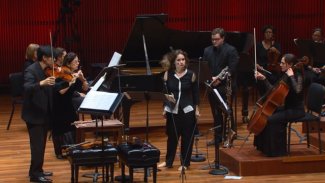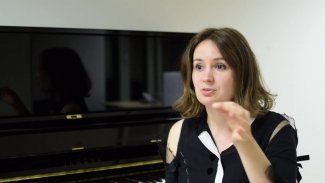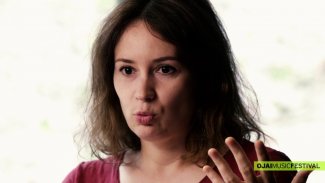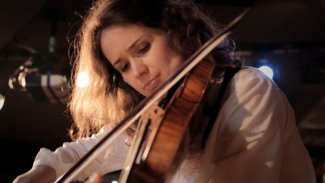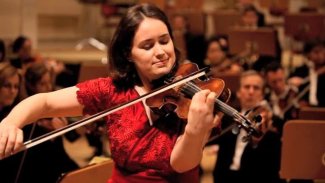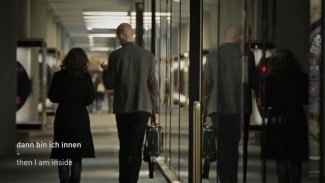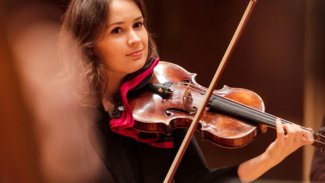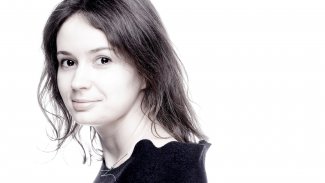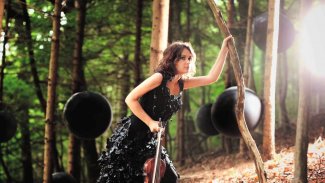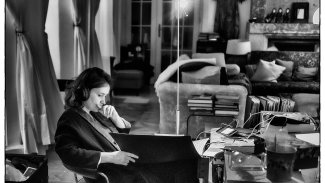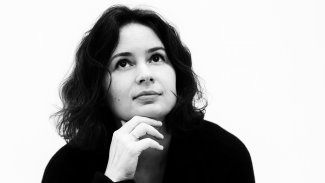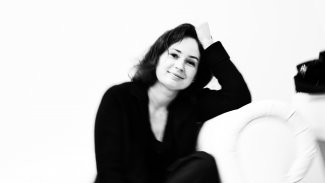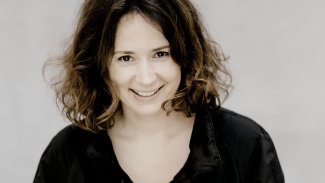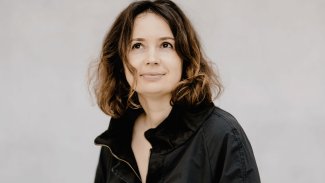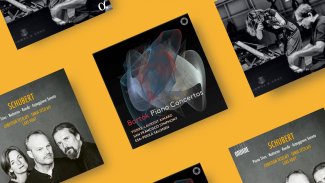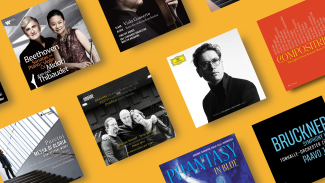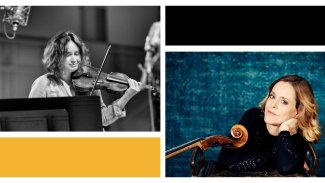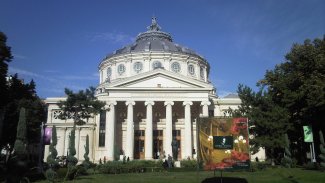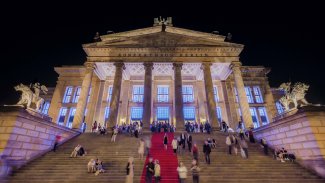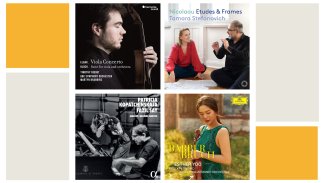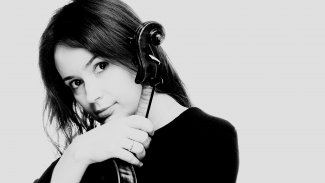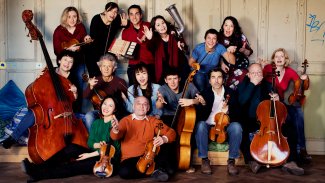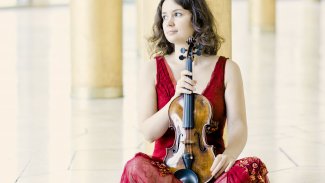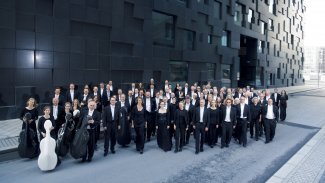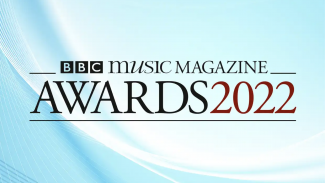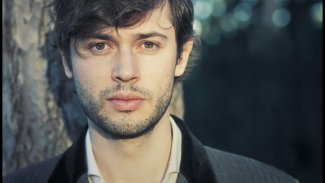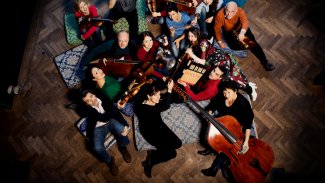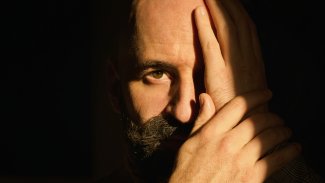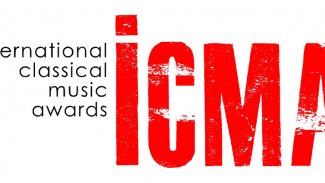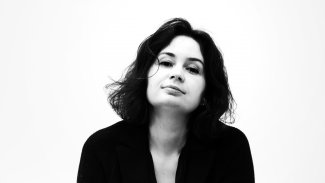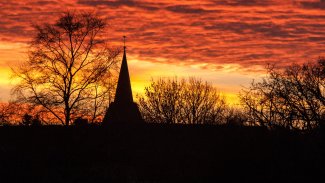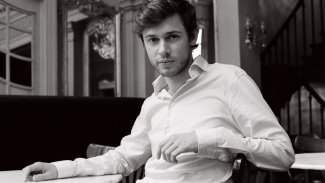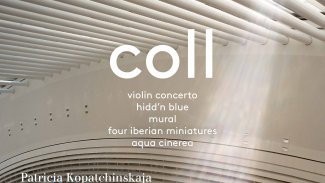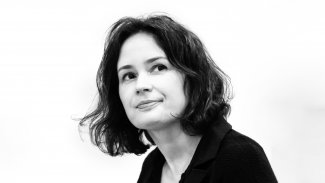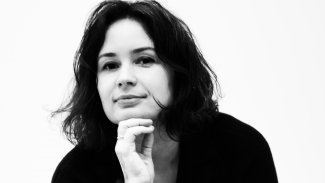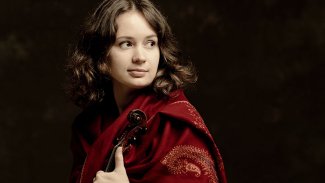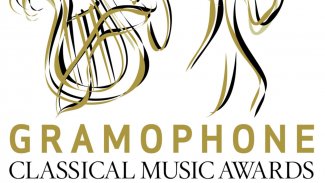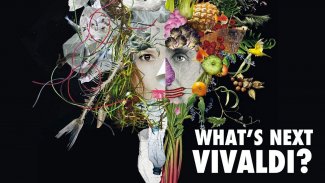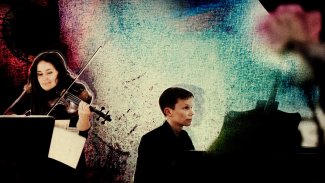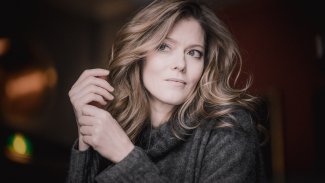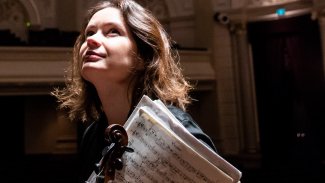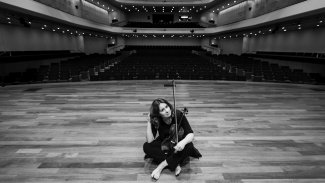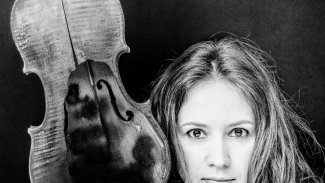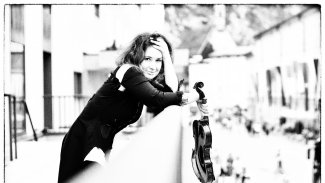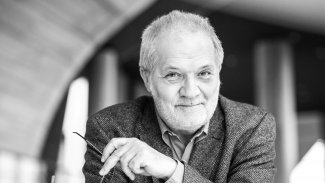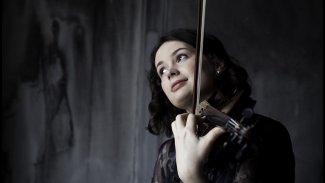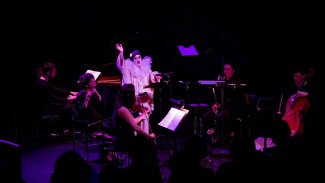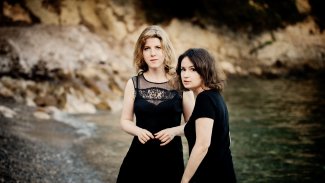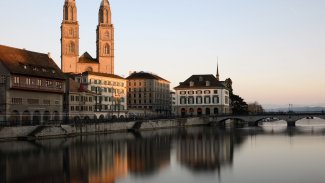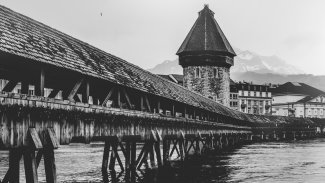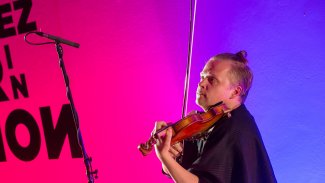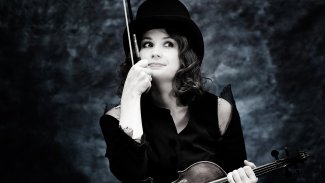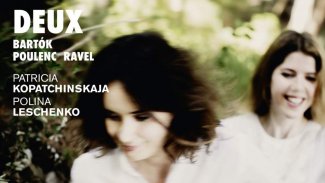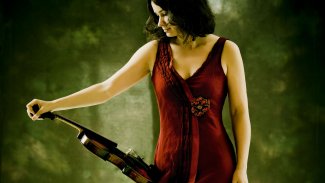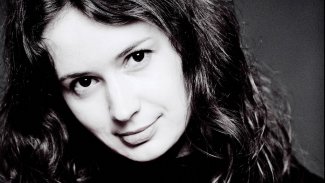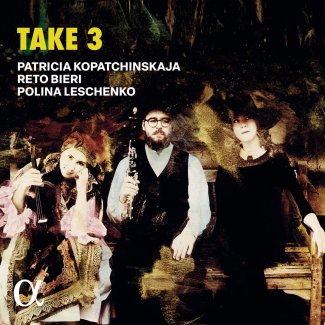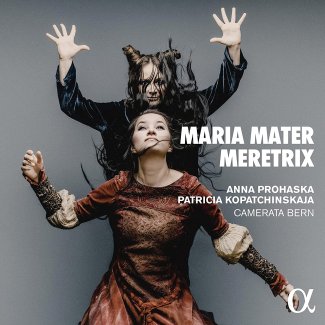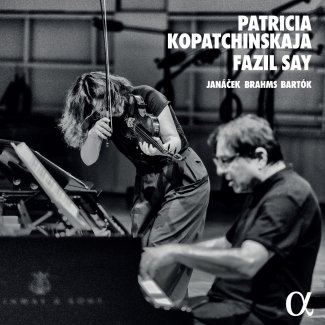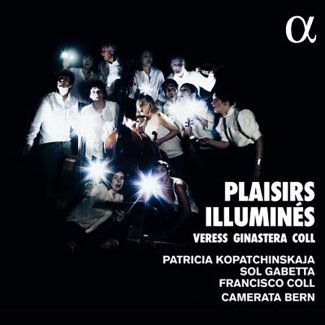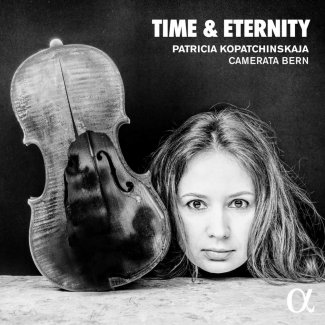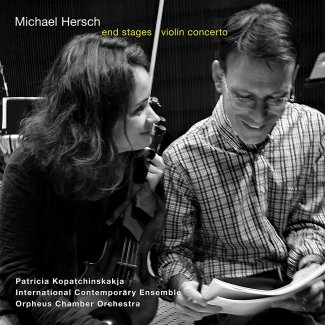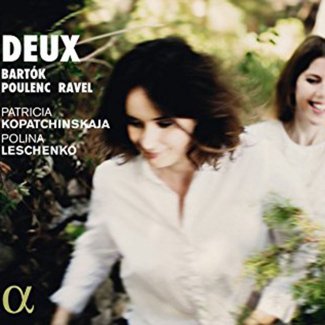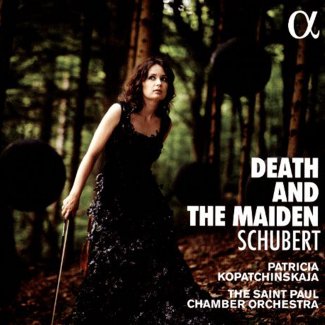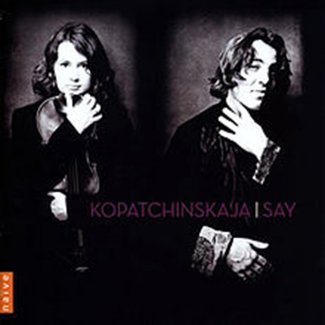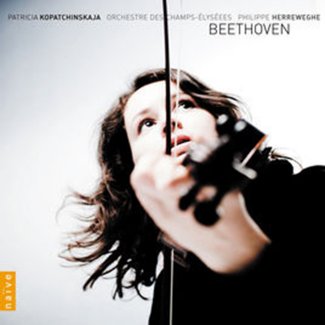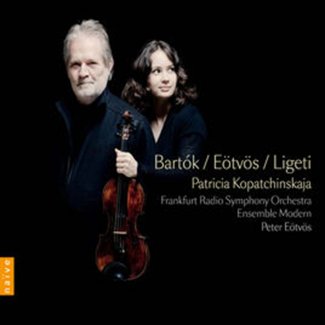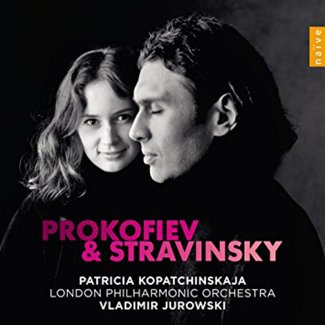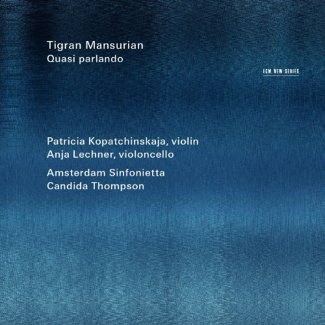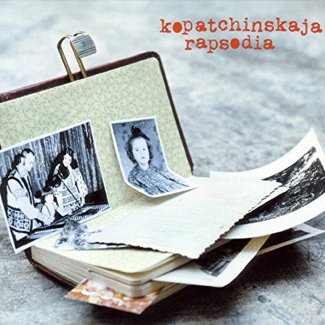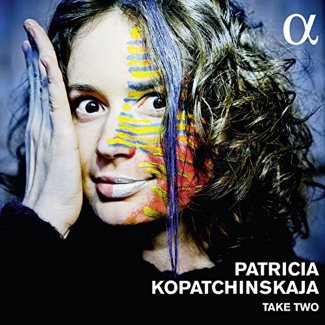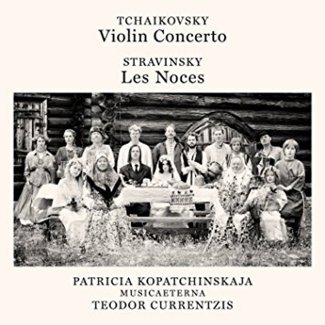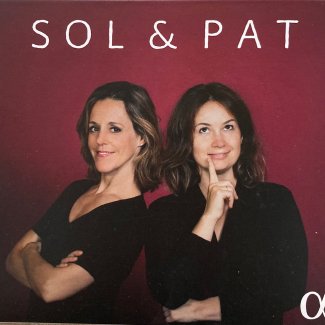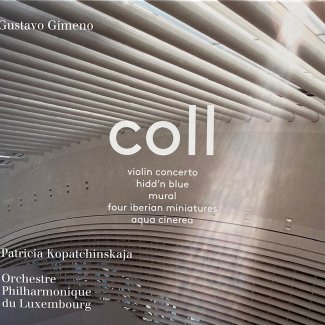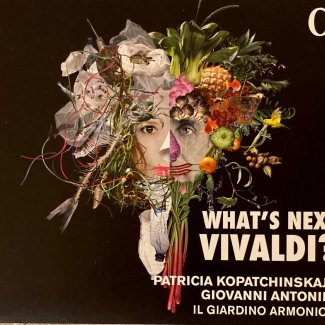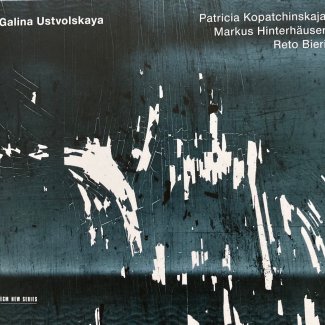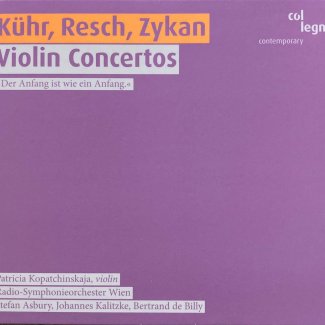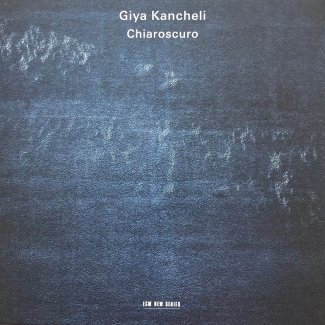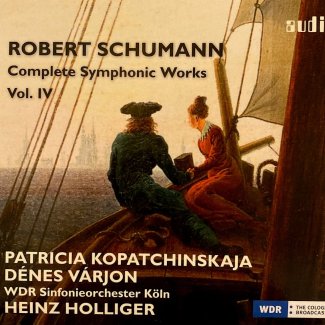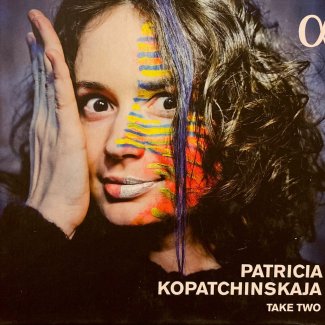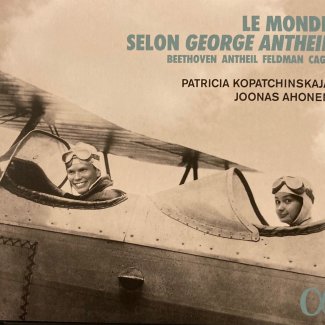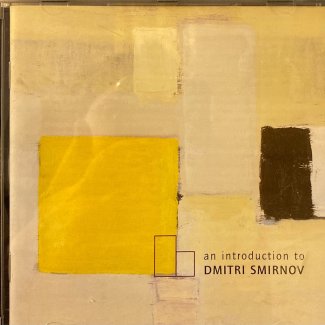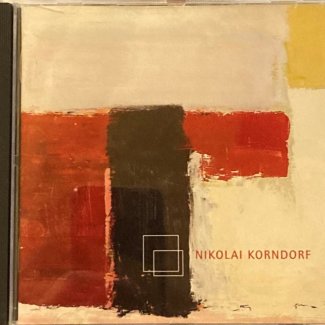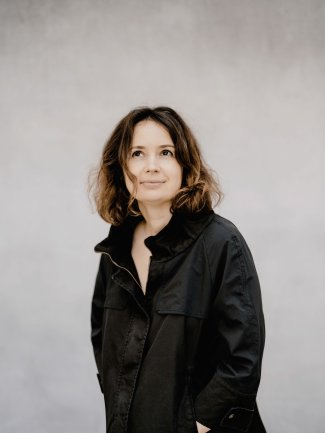
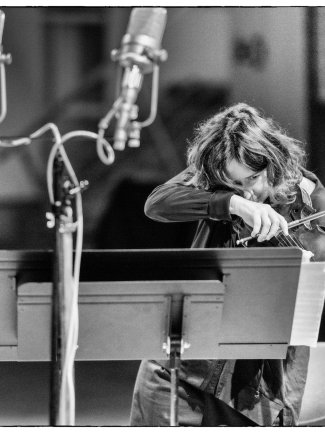
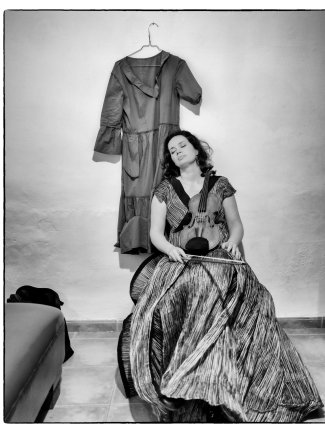
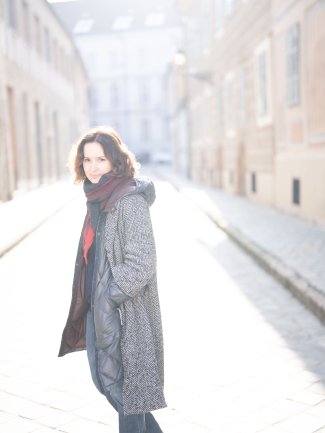
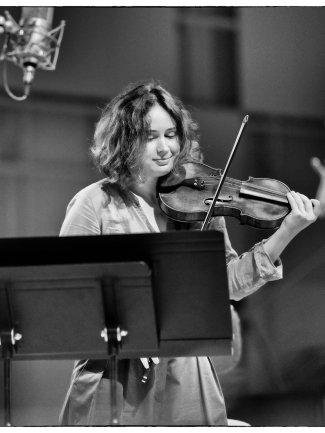
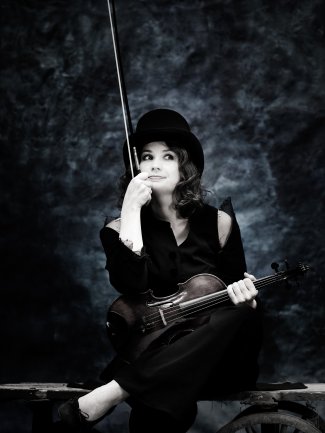
Patricia Kopatchinskaja
“Constantly characterised (and slightly demeaned) as a “quirky maverick”, Kopatchinskaja proved here that she’s in a class of her own.”
(Richard Morrison, The Times, September 2019)
Patricia Kopatchinskaja’s focus is to get to the heart of the music, to its meaning for us — now and here. With a combination of depth, brilliance and humour, Kopatchinskaja brings an inimitable sense of theatrics to her music. Described by The New York Times “a player of rare expressive energy and disarming informality, of whimsy and theatrical ambition”, Kopatchinskaja’s distinctive approach always conveys the essence of a work, whether in a fresh interpretation of a violin repertoire classic or through one of her original staged projects that cross musical, theatrical, and interdisciplinary boundaries.
A visionary who thrives on experimentation and collaboration, she describes contemporary music as her lifeblood. Her artistic partnerships with living composers such as Francisco Coll, Luca Francesconi, Michael Hersch, Márton Illés, György Kurtág, Esa-Pekka Salonen and Aureliano Cattaneo have resulted in numerous world premieres. Kopatchinskaja directs staged concerts at venues on both sides of the Atlantic and collaborates with leading orchestras, conductors, and festivals worldwide. A virtuoso, storyteller, and all-around phenomenon, Kopatchinskaja continues to serve as Artistic Partner of the SWR Symphony Orchestra, designing her own programmes in both established and innovative staged concert formats. Among these is the staged concert The Peace Project, which reflects on centuries of existential suffering caused by war through a kaleidoscope of baroque and modern works up to the present day. The project addresses the numerous reports from war zones, the violent disruption of daily life, and the constant fear for one’s life and loved ones.
Kopatchinskaja kicks off the 2025/26 season with the Staatskapelle Berlin. Further ahead, she appears as the London Symphony Orchestra’s Artist Portrait, performing Berg’s Violin Concerto, Bartók’s Second Violin Concerto, and Márton Illés’ Violin Concerto, including a tour to Spain. She also channels her creative prowess and versatility into composition and celebrates a personal milestone as composer with the performance of her double concerto for violin and cello, Five Dreams, at the Lucerne Festival Forward. Following her debut with the New York Philharmoniclast season, Kopatchinskaja also debuts with the Cleveland Orchestra. Two of her signature staged projects feature prominently this season. Dies Irae — a part-concert, part-installation presented at Princeton University — merges a fierce musical enactment of the Day of Judgment with a sharp critique of war and the climate crisis as drivers of human self-destruction. Drawing on works by Scelsi, Biber, Crumb, Hendrix, Lotti, Dowland, and Ustvolskaya, the provocative, semi-staged performance evokes a haunting “day of wrath” in response to global collapse, resource wars, and the refugee crisis. At the Salzburg Festival she revives another signature project, Les Adieux, confronting the rapid deterioration of the natural world. Following her tenure as Artist-in-Residence at the Prague Spring Festival 2025, Kopatchinskaja reunites with the Czech Philharmonic and Jakub Hrůša for Fišer’s Violin Concerto. She also champions new music with the world premiere of a violin concerto by Stefano Gervasoni with Orchestre Philharmonique de Radio France as part of the Festival ManiFeste.
Show More
In recent seasons, Kopatchinskaja has curated major residencies at the Southbank Centre, London, Wiener Konzerthaus (where she is the youngest honorary member of the Wiener Konzerthausgesellschaft), Philharmonie Essen, the Berlin Philharmonic, the Orchestre Philharmonique de Radio France and the Elbphilharmonie Hamburg. Last year’s Golden Decade festival at the Dresden Philharmonic featured her performing six major violin works from the Classical Modern era over three consecutive evenings. Highlights have included Songs and Fragments, a Barrie Kosky production at Festival d’Aix-en-Provence together with soprano Anna Prohaska and a daring musical experiment with Herbert Fritsch — a Neo-Dada opera production Vergeigt at Theater Basel. Last season, Kopatchinskaja honoured Schönberg’s 150th anniversary by performing his monumental violin concerto with the BBC and Vienna Symphony orchestras, the Dresden Philharmonic, the Orchestre Philharmonique de Radio France, and Deutsche Kammerphilharmonie Bremen, to name just a few. As part of the anniversary celebration, Kopatchinskaja’s performance of Pierrot Lunaire at the Palau de la Música in 2025 took place exactly 100 years to the day after Schönberg himself staged his melodrama at this venue. Kopatchinskaja also performs as a vocal artist in Ligeti’s Mystères du macabre or Schönberg’s Pierrot Lunaire where she takes on the role of Pierrot himself, as well as her project presenting Kurt Schwitters’ poem Ursonate as a film in the style of Dada. She was also an Associated Artist of the SWR Experimentalstudio, one of the world’s leading centres for electronic music research.
Kopatchinskaja’s discography includes over 30 recordings, among them GRAMMY award-winning Death and the Maiden with Saint Paul Chamber Orchestra, a project which was also re-created as a semi-staged filmed performance with Camerata Bern. Recent CD releases season included Les Plaisirs Illuminés with Sol Gabetta and Camerata Bern, which was saluted with a BBC Music Magazine award and Le monde selon George Antheil with Joonas Ahonen (both on Alpha Classics). A revival of the project Maria Mater Meretrix with Anna Prohaska presenting the image of women throughout the centuries in a musical mosaic was also released on CD last season, as well as a new recording with Fazil Say which marks the comeback of their duo and has been awarded Editor’s Choice by Gramophone. This season has also seen the release of the album Take 3 with clarinettist Reto Bieri and pianist Polina Leschenko — a testament to the enduring partnership of these three artists, celebrating their shared musical journey and musical origins.
Contacts
Ariane Levy-Künstler EOT Director | Director, Artist Management Jasper Parrott Executive Chairman HP Group & Associated Companies
worldwide general management
Jasper Parrott Executive Chairman HP Group & Associated Companies
worldwide general management
Gallery
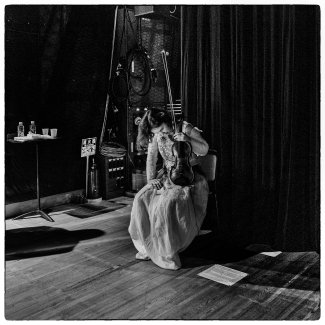

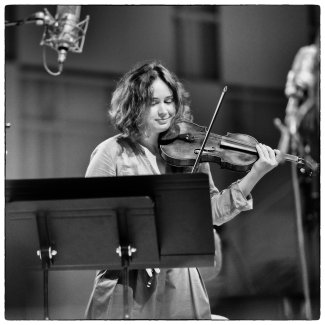
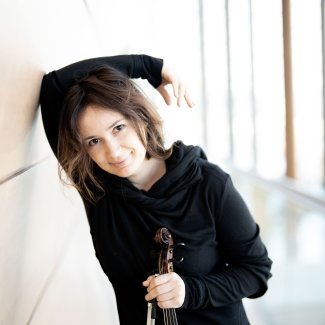
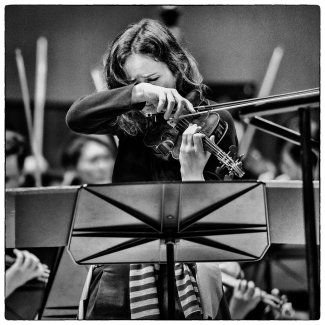
Season Highlights
Klara Festival
Show more about Klara Festival
BACH - Sarabande only
IGOR STRAVINSKY: Concerto for Violin in D
JOHANN SEBASTIAN BACH: Suite No. 5 for Cello Solo in C minor, BWV 1011
OLIVIER MESSIAEN: Les Offrandes oubliees
PATKOP: A Play
Klara Festival
Show more about Klara Festival
PK Dies Irae 2024
GIACINTO SCELSI: Okanagon
HEINRICH BIBER: Battalia à 10, No. 1 Sonata, No. 2 Die liederliche Gesellschaft von allerley Humor, No. 3 Presto
GEORGE CRUMB: Black Angels, No. 2 Sounds of Bones and Flutes
HEINRICH BIBER: Battalia à 10, No. 4 Der Mars, No. 5 Presto
GEORGE CRUMB: Black Angels, No. 5 Danse Macabre
HEINRICH BIBER: Battalia à 10, No. 6 Aria
GEORGE CRUMB: Black Angels, No. 4 Devil-music
HEINRICH BIBER: Battalia à 10, No. 7 Die Schlacht
GEORGE CRUMB: Black Angels, No. 10 God-music
HEINRICH BIBER: Battalia à 10, No. 8 Adagio. Lamento der Verwundten Musquetirer
GEORGE CRUMB: Black Angels, No. 7 Threnody II: Black Angels!
ANTONIO LOTTI: Cruzifixus
JOHN DOWLAND: Lachrimae antiquae novae
GALINA USTVOLSKAYA: Composition No. 2: “Dies Irae” for eight double basses, percussion and piano
TRADITIONAL: Dies Irae
Auditorio Principe Felipe
Show more about Auditorio Principe Felipe
JEAN-MARIE LECLAIR: Tambourin in C major
JÖRG WIDMANN: 24 Duos for Violin and Violoncello, Vol. 2: VIII Valse bavaroise, Vol. 2: XI Toccatina all’inglese
JOHANN SEBASTIAN BACH: Prelude and Fugue in G major, BWV 860
FRANCISCO COLL: Rizoma
MAURICE RAVEL: Sonata for Violin and Cello
JOHANN SEBASTIAN BACH: Fifteen Two-Part Inventions, BWV 772-786
PATKOP: Ghiribizzi
GYÖRGY LIGETI: Hommage à Hilding Rosenberg
IANNIS XENAKIS: Dhipli Zyia for Violin and Cello
CARL PHILIPP EMANUEL BACH: Presto for Keyboard in C Minor, Wq 114/3
ZOLTÁN KODÁLY: Duo for Violin and Cello, Op.7
Centro Nacional de Difusion Musical
Show more about Centro Nacional de Difusion Musical
JEAN-MARIE LECLAIR: Tambourin in C major
JÖRG WIDMANN: 24 Duos for Violin and Violoncello, Vol. 2: VIII Valse bavaroise, Vol. 2: XI Toccatina all’inglese
JOHANN SEBASTIAN BACH: Prelude and Fugue in G major, BWV 860
FRANCISCO COLL: Rizoma
MAURICE RAVEL: Sonata for Violin and Cello
JOHANN SEBASTIAN BACH: Fifteen Two-Part Inventions, BWV 772-786
PATKOP: Ghiribizzi
GYÖRGY LIGETI: Hommage à Hilding Rosenberg
IANNIS XENAKIS: Dhipli Zyia for Violin and Cello
CARL PHILIPP EMANUEL BACH: Presto for Keyboard in C Minor, Wq 114/3
ZOLTÁN KODÁLY: Duo for Violin and Cello, Op.7
Show more season highlights
Palau de la Musica
Show more about Palau de la Musica
ARNOLD SCHOENBERG: Chamber Symphony No. 1, Op.9
PATKOP: Luna
ARNOLD SCHOENBERG: Pierrot Lunaire
Teatro alla Scala
Show more about Teatro alla Scala
STEFANO GERVASONI: Tacet
FRANCESCO FILIDEI: Cantico delle Creature
GYÖRGY KURTÁG: Kafka Fragments
AURELIANO CATTANEO: Not alone we fly
Camerata Bern
Show more about Camerata Bern
JOHN ZORN: Kol Nidrei
KARL AMADEUS HARTMANN: Concerto funèbre
NIKOLAY IKONIKOV: Unsterbliche Opfer
GUILLAUME DE MACHAUT: Messe de Notre Dame, 1. Kyrie
FRANK MARTIN: Polyptyque for violin and two string orchestras, I. Image des Rameaux
JOHANN SEBASTIAN BACH: St John Passion, BWV 245 – Chorale “Ach großer König” (transcription for string orchestra)
FRANK MARTIN: Polyptyque for violin and two string orchestras, II. Image de la Chambre haute
JOHANN SEBASTIAN BACH: Chorale “Als Jesus Christus in der Nacht”, BWV 265
FRANK MARTIN: Polyptyque for violin and two string orchestras, III. Image de Juda
JOHANN SEBASTIAN BACH: St John Passion, BWV 245 – Chorale “Durch dein Gefängnis” (transcription for string orchestra)
FRANK MARTIN: Polyptyque for violin and two string orchestras, IV. Image de Géthsémané
JOHANN SEBASTIAN BACH: St John Passion, BWV 245 – Chorale “Wer hat dich so geschlagen” (transcription for string orchestra)
FRANK MARTIN: Polyptyque for violin and two string orchestras, V. Image du Jugement
LUBOS FISER: Crux for violin, kettle drums and bells
FRANK MARTIN: Polyptyque for violin and two string orchestras, VI. Image de la Glorification
JOHANN SEBASTIAN BACH: St John Passion, BWV 245 – Chorale “O große Lieb” (transcription for string orchestra)
Rudolfinum / Dvořák Hall
Show more about Rudolfinum / Dvořák Hall
IGOR STRAVINSKY: Histoire du soldat (The Soldier’s Tale)
DARIUS MILHAUD: JEU for Clarinet and Violin
BÉLA BARTÓK: Contrasts for Clarinet, Violin and Piano, Sz.111
ARNOLD SCHOENBERG: Pierrot Lunaire
LUBOS FISER: Sonata for Solo Violin 'In Memoriam Terezin'
LUBOS FISER: Sonata for Violin and Piano (Ruce)
LUBOS FISER: Sonata for Solo Piano No. 3
LUDWIG VAN BEETHOVEN: Sonata for Violin and Piano No. 10 G major op. 96
Auditorium de Radio France
Show more about Auditorium de Radio France
LILI BOULANGER: D’un Matin de Printemps
ALBAN BERG: Violin Concerto (1935)
FRANZ JOSEPH HAYDN: Symphony No. 7 in C major (Le Midi), Hob. I:7
RICHARD STRAUSS: Tod und Verklärung, Op. 24
Aspen Music Festival & School
Show more about Aspen Music Festival & School
JEAN-MARIE LECLAIR: Tambourin in C major
JÖRG WIDMANN: 24 Duos for Violin and Violoncello, Vol. 2: VIII Valse bavaroise, Vol. 2: XI Toccatina all’inglese
JOHANN SEBASTIAN BACH: Prelude and Fugue in G major, BWV 860
FRANCISCO COLL: Rizoma
MAURICE RAVEL: Sonata for Violin and Cello
JOHANN SEBASTIAN BACH: Fifteen Two-Part Inventions, BWV 772-786
PATKOP: Ghiribizzi
GYÖRGY LIGETI: Hommage à Hilding Rosenberg
IANNIS XENAKIS: Dhipli Zyia for Violin and Cello
CARL PHILIPP EMANUEL BACH: Presto for Keyboard in C Minor, Wq 114/3
ZOLTÁN KODÁLY: Duo for Violin and Cello, Op.7
Vail Valley Music Festival
Show more about Vail Valley Music Festival
IGOR STRAVINSKY: Concerto for Violin in D
JEAN-MARIE LECLAIR: Tambourin in C major
JÖRG WIDMANN: 24 Duos for Violin and Violoncello, Vol. 2: VIII Valse bavaroise, Vol. 2: XI Toccatina all’inglese
JOHANN SEBASTIAN BACH: Prelude and Fugue in G major, BWV 860
FRANCISCO COLL: Rizoma
MAURICE RAVEL: Sonata for Violin and Cello
JOHANN SEBASTIAN BACH: Fifteen Two-Part Inventions, BWV 772-786
PATKOP: Ghiribizzi
GYÖRGY LIGETI: Hommage à Hilding Rosenberg
IANNIS XENAKIS: Dhipli Zyia for Violin and Cello
CARL PHILIPP EMANUEL BACH: Presto for Keyboard in C Minor, Wq 114/3
ZOLTÁN KODÁLY: Duo for Violin and Cello, Op.7
Stiftung Mozarteum
Show more about Stiftung Mozarteum
TIGRAN MANSURIAN: Four Serious Songs (Concerto No. 2) for Violin and String Orchestra
GALINA USTVOLSKAYA: Duet for Violin and Piano (1964)
PETERIS VASKS: Musica Dolorosa
Camerata Bern
Show more about Camerata Bern
GIAMBERTI Cu cu only
SCHUBERT Menuett Nr. 3 only
ANDRZEJ PANUFNIK: Arbor Cosmica (12 Evocations for 12 Strings), I. Andante moderato
TRADITIONAL: Cucuşor cu pană sură
ANDRZEJ PANUFNIK: Arbor Cosmica (12 Evocations for 12 Strings), IV. Prestissimo possibile
EUGÈNE YSAŸE: Exil, Op. 25
HEINZ HOLLIGER: Duöli
ANDRZEJ PANUFNIK: Arbor Cosmica (12 Evocations for 12 Strings), VI. Lento-moderato-vivacissimo
PATKOP: Intermezzo
ALFRED SCHNITTKE: Sonata for cello and piano No. 1
ANDRZEJ PANUFNIK: Arbor Cosmica (12 Evocations for 12 Strings), VIII. Molto allegro
GIUSEPPE GIAMBERTI: Duo tessuti con diversi solfeggiamenti, scherzi, perfidie, et oblighi (1657)
FRANZ SCHUBERT: Five minuets with six trios, D89, 3. Minuet and Trio in D minor
ANDRZEJ PANUFNIK: Arbor Cosmica (12 Evocations for 12 Strings), X. Molto vivace
GEORG PHILIPP TELEMANN: Violin Concerto, TWV 51:A4, "Die Relinge"
ANDRZEJ PANUFNIK: Arbor Cosmica (12 Evocations for 12 Strings), XII. Presto
JEAN-FERY REBEL: Le cahos (Chaos) from Les Élémens
HEINZ HOLLIGER: Duöli
Internationale Stiftung Mozarteum
Show more about Internationale Stiftung Mozarteum
ARNOLD SCHOENBERG: Fantasie für Violine und Klavier
ERIK SATIE: Choses vues à droite et à gauche
LUDWIG VAN BEETHOVEN: Sonata for Violin and Piano No. 8 G major, Op. 30/3
LUDWIG VAN BEETHOVEN: Sonata for Violin and Piano No. 4 in A minor, Op. 23
GEORGE ANTHEIL: Sonata No.1 for Violin and Piano (1923)
“The violinist Patricia Kopatchinskaja is not to be outdone, ensuring not only the very virtuosic and colourful instrumental part but also that of the soprano’s partner, juggling between the two domains with the greatest ease.”
“Kopatchinskaja breathes life into everything she touches, that we knew already. But this film took it to a new level. Astonishing.”
“[Francisco Coll’s Les Plaisirs Illuminés] draws impeccable, high-precision playing from Kopatchinskaja and her co-soloist Sol Gabetta, both beautifully supple in their responsiveness to Coll’s fantastical invention.”
“The playing from Kopatchinskaja, including the finest gradations of vibrato control and agogic phrasing, is exceptional and the idea of a first among equals unavoidable.”
“Kopatchinskaja has a wonderful way of giving Vivaldi’s plaintive slow movements an extra edge of pathos, drawing a thread of sound as thin and delicate as gossamer.”
“No-one familiar with the work of these unfailingly imaginative and challenging musicians will be disappointed with this absorbing disc, and for the light it shines on Vivaldi and our contemporary responses to his music it counts as essential listening”
“It is the character of a great virtuoso to make the instrument become an extension of the player. Kopatchinskaja, though, is the violin. She plays in a state of astonishment and the violin becomes her.”
“Constantly characterised (and slightly demeaned) as a “quirky maverick”, Kopatchinskaja proved here that she’s in a class of her own.”
“Kopatchinskaja was like a car teasing a butterfly, always ready to pounce on a passing phrase, whether answering the first violins or duetting with a perky clarinet. It has become her calling card to make the familiar unfamiliar.”
“The orchestra’s brilliantly daft staging of John Cage’s Europeras inside a backlot stage at Sony Studios would have been a landmark event in any year, and yet L.A. Phil’s presentation of provocative violinist Patricia Kopatchinskaja and pianist Gloria Cheng deconstructing pieces by John Cage and Sofia Gubaidulina at the Getty Center proved anew how exciting new music can be when it’s delivered in unusual formats and settings by subversive and committed musicians who don’t mind standing in bathtubs and popping balloons while they perform.”
“Kopatchinskaja’s violin swooped and swerved…It was that subtle but constant sense of music’s theatrical potential that underpinned everything”
Kopatchinskaja’s wild Tchaikovsky
“…it was clear that Kopatchinskaja and Mirga Gražinytė-Tyla were musically, historically, and emotionally on the same page. Conductor and soloist wielded their bow and baton like a pair of swashbucklers in a duel between the violin and the orchestra that made everything old sound new again.”
“[She] is a phenomenal virtuoso with the necessary technique to burn and the bravery to then burn it”
“Patricia Kopatchinskaja never fails to engage both the listener’s ears and mind with performances of personality that make scores live as if freshly discovered. Leschenko is the perfect partner.”
“Patricia Kopatchinskaja, who commissioned the concerto (Hersch Violin Concerto), aptly describes it as ‘brutal and vulnerable at the same time’, and her performance conveys that dichotomy with ferocious commitment, aided with fearlessness by the International Contemporary Ensemble under Tito Muñoz. The music’s intense physicality and bleak atmosphere make for gripping, if harrowing, listening. What draws me to listen again and again is Hersch’s ability to communicate desperation that somehow never plummets into despair.”
“She is a player of rare expressive energy and disarming informality, of whimsy and theatrical ambition. (Listen to her Tchaikovsky concerto recording, now!) In all these qualities, she was a perfect choice for Ojai, which each year invites a different artist — a performer, director, composer, conductor or choreographer — to plan the four-day festival as a concentrated shot of his or her enthusiasms.”
“This was a performance like no other, fabulously virtuosic with soloist and orchestra uncannily on the same wavelength.”
“Nor is there anything ordinary about this latest CD, a recital with the pianist Polina Leschenko that is a feast of edgy, risk-filled music-making.”
“One of the most distinctive voices in the violin world at the moment is surely that of Patricia Kopatchinskaja, whose previous recordings of works such as Tchaikovsky’s Violin Concerto have undoubtedly offered a unique take on familiar pieces. For her latest recording of music by Poulenc, Bartók and Ravel she is joined by pianist Polina Leschenko.”
“In the moments before pressing play on any new recording from Patricia Kopatchinskaja, the only thing you can be absolutely certain of is that you’re about to hear something brimming with personality, individuality and panache”
“….And then there was Kopatchinskaja in the violin work, an astonishing force of nature, powering her way through its hair-raising difficulties as the orchestra conjured a half-remembered world that seems gradually to be slipping beyond recall, and throwing in a cadenza of her own for good measure, one totally consistent with Ligeti’s surreal world.”
“Her voice was her instrument, Sprechstimme her style, a cross between speaking and singing to which she added dramatic movement and expression…She was a sprite in a deconstructed tux, fearless and wild.”
“… Kopatchinskaja commanded the stage, the quintet around her perfectly in sync with her in both rhythm and spirit.”
“In between came a wondrous account of Berg’s violin concerto, written both to mark a death and in the year that Berg himself died. Patricia Kopatchinskaja’s account was fragile, eloquent and never portentous. Her playing captured this heartbreaking music with just the right mixture of tenderness and transcendence.”
“[Ligeti’s Violin Concerto] suits the flamboyant Patricia Kopatchinskaja, who has both the monster technique and the theatricality that the piece demands…. The paradox of her extroversion is that it never seems exhibitionistic. Every gesture serves to underscore the music, and her playing has an animalistic wildness to it that is anything but self-serving. This is playing with guts and meaning, with burly physicality and risk, with a formidable toolkit that can take in everything from fragility to brutality.”
“Patricia Kopatchinskaja shows her astonishing artistry on ‘Take Two’ and ‘Chiaroscuro … Her body and her instrument and the music she makes all seem one. She is ever thrilling alive to the moment … I don’t have to think twice about making my recording of the year.”
“Patricia Kopatchinskaja excels in Thomas Larcher’s extraordinary violin concerto; she brings a fiery originality to everything she plays.” *****
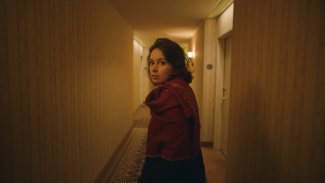
![Patricia Kopatchinskaja: Musik der Zeit [3] Alle Gegen Eine Thumbnail](/sites/default/files/styles/banner_small/public/video_thumbnails/Jq64LpBW66k.jpg?h=c673cd1c&itok=T6pxD5Bd)
